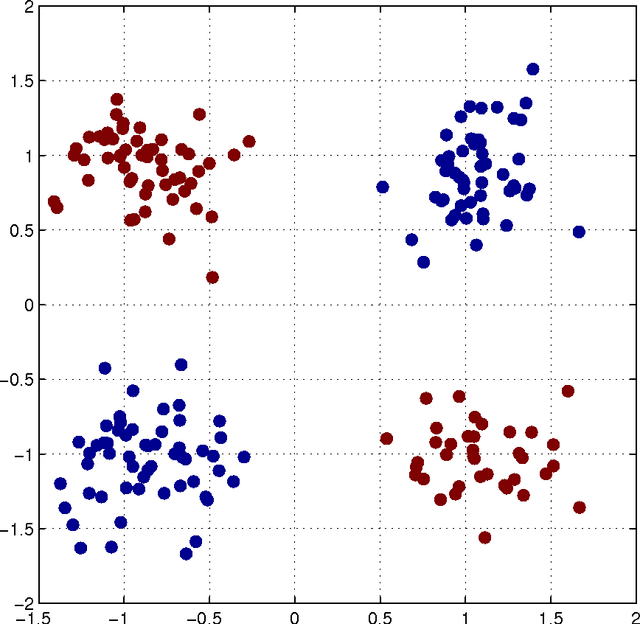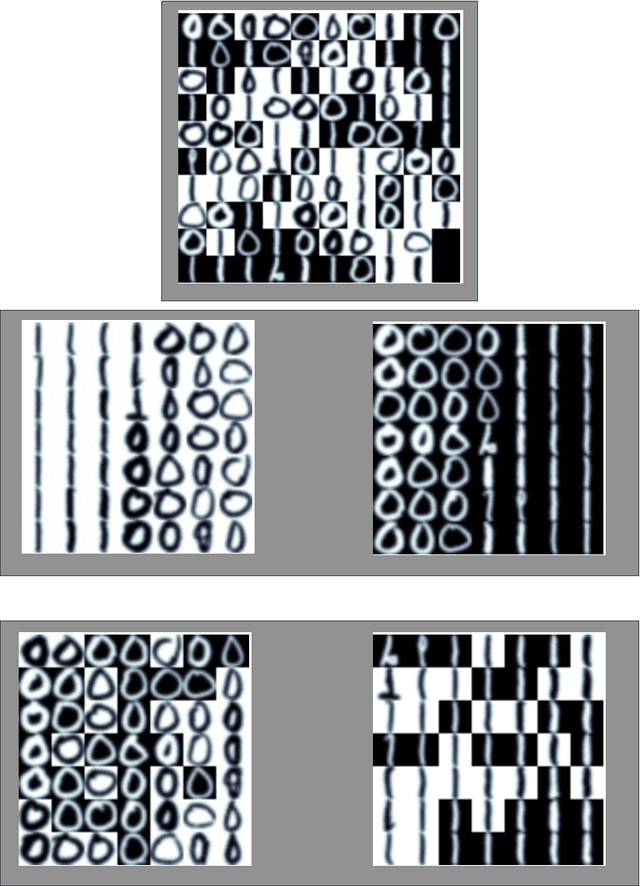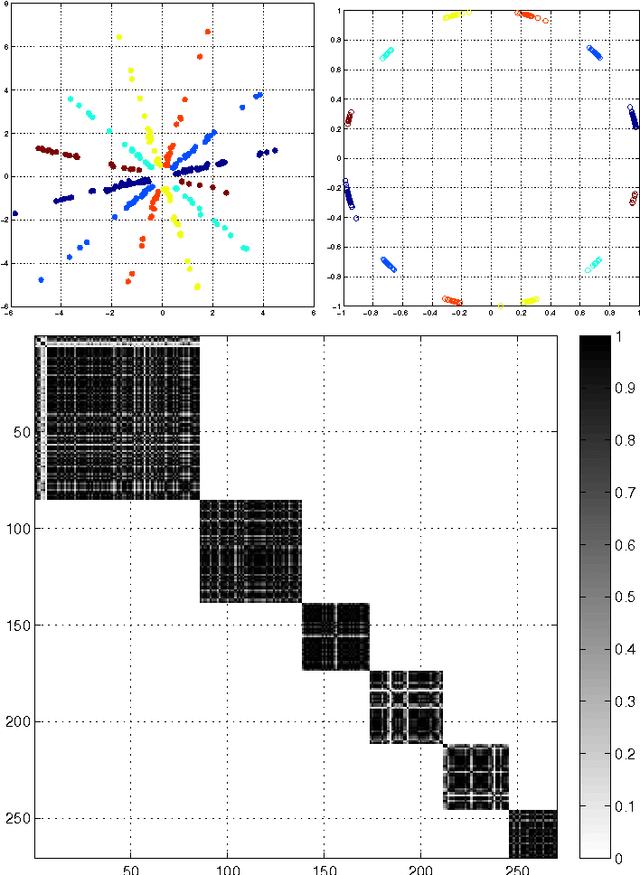Andreas Ziehe
Learning with Algebraic Invariances, and the Invariant Kernel Trick
Nov 28, 2014


Abstract:When solving data analysis problems it is important to integrate prior knowledge and/or structural invariances. This paper contributes by a novel framework for incorporating algebraic invariance structure into kernels. In particular, we show that algebraic properties such as sign symmetries in data, phase independence, scaling etc. can be included easily by essentially performing the kernel trick twice. We demonstrate the usefulness of our theory in simulations on selected applications such as sign-invariant spectral clustering and underdetermined ICA.
Approximate Rank-Detecting Factorization of Low-Rank Tensors
Nov 30, 2012

Abstract:We present an algorithm, AROFAC2, which detects the (CP-)rank of a degree 3 tensor and calculates its factorization into rank-one components. We provide generative conditions for the algorithm to work and demonstrate on both synthetic and real world data that AROFAC2 is a potentially outperforming alternative to the gold standard PARAFAC over which it has the advantages that it can intrinsically detect the true rank, avoids spurious components, and is stable with respect to outliers and non-Gaussian noise.
 Add to Chrome
Add to Chrome Add to Firefox
Add to Firefox Add to Edge
Add to Edge